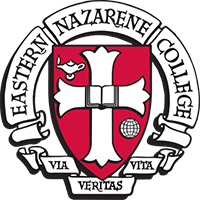The education program prepares future teachers who are versed in a range of disciplines, from the liberal arts to the sciences. Education majors learn the latest education strategies and techniques to teach students representing a diversity of backgrounds and learning styles. Education majors work with an expert faculty at Eastern Nazarene College and receive practical classroom experience throughout the state of Massachusetts, ranked as one of the top school systems in the country, as well as at the college’s resident preschool, Campus Kinder Haus. Degree programs and licensure areas offered include:
Bachelor of Arts:
Early Childhood Education
Elementary Education
Secondary Education
Teacher of Students with Moderate Disabilities (TSMD)
Associate of Arts:
Early Childhood Education
Licensure Areas:
Early Childhood (Grades PreK-2)
Elementary (Grades 1-6)
Moderate Disabilities (Grades PreK-8 and 5-12)
History (Grades 5-12)
Biology (grades 8-12)
Chemistry (Grades 8-12)
Physics (Grades 8-12)

Education majors gain practical classroom experience at the college’s resident preschool, Campus Kinder Haus, in Quincy, MA.
The Teacher Education Program is approved by the Massachusetts Department of Elementary and Secondary Education. Upon completion of the program and all Massachusetts Test for Educator Licensure tests (MTELs), candidates are eligible for the Initial License in their teaching area. They are also eligible for a first license in several states based on the Interstate National Association of State Directors of Teacher Education and Certification (NASDTEC). Additional state tests/exams may be required to obtain the license. During your time at Eastern Nazarene College, you will develop strong ties with your peers in classes that average only 15 students and close working relationships with your professors who are both full-time faculty and adjunct educators.
The Education Program prepares teachers who:
- Are able to teach in public and private schools.
- Are prepared to teach in a globally diverse society.
- Are grounded in research, theory, and practice.
- Develop a high level of competence to work with and address the needs of students.
- Develop skills to collaborate with colleagues where they are able to gain employment.
- Understand and gain skills in the integration of content knowledge, teaching pedagogy, process, and their inherent relationships as part of their development toward professional educators.
- Develop skills as reflective, effective, and skilled facilitators of learning.
- Are prepared to process information in a technologically advanced society.
- Able to adapt to different teaching settings and diverse cultural backgrounds.
- Understand and model in the classroom a wide range of effective teaching and learning techniques, computer-based multimedia technologies, and the application of current and established research on teaching and learning.
- Develop skills to foster effective interaction, engagement and building of partnerships with families, caregivers, and communities.



